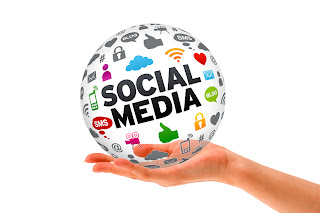Ok, so I know that most of my posts are
about aspects of social media, but there is just so much to talk about! Most
of my day is surrounded with social media, and a lot of what I write about has
been inspired from things I have seen on social media platforms.
Communication
is changing, and a big part of that reason is social media. Just as the
telephone replaced the telegraph to become the preferred way to reach out to
people, the web and social media have done the same, but to an unprecedented degree.
People can communicate through photos, videos, text and websites with just
about anyone in the world instantly.
While people
are seemingly more connected, the competing social networks actually fragment
the content shared by people, even if they are talking about the same thing or
are at the same event. Due to the fact that social networks compete with
one another, there is no one place to engage or consume the content across blogs
or services like twitter, Instagram, Flickr, Facebook etc. Wouldn’t it be
great if there was one place were all this information could come together? –
well there is! I present Epilogger! The best
way to describe this platform is as various patches of coloured fabric, each
one made by a different person who may or may not know the creators of the
other pieces. At some point they will want to see all the pieces come together
into a quilt. Epilogger is that quilt. It takes all the content about an event
or movement, or subject and creates a central community regardless of what
social network people use to share content. From there is allows people to
contribute to that community with the app and website in a beautiful
"quilt" that's fully interactive.
It amazes me
how things have changed so rapidly over the years, I remember when Facebook
just came out, and now look at the technology that has become since then.
Social media is fairly new and yet it is developing so quickly. We are now able
to communicate with people all around the world instantly, and virtually be
apart of events across the globe. We are becoming connected in ways that I
never imagined possible. The world really is becoming a smaller place, and
Epilogger and the abovementioned social media networks are the cause of the
“coziness”. So get comfortable and make your mark!






